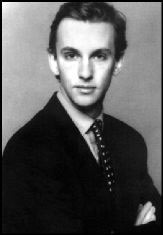NOBODY’S PERFECT
WRITINGS FROM THE NEW YORKER
by Anthony Lane
(Alfred A. Knopf, $35)
ANTHONY LANE HAS his place, and I have mine. Generally considered the most esteemed film critic in the land (Ebert has more mass-market clout), he’s occupied his perch (or co-perch) at The New Yorker since 1993. My conclusion after skimming this doorstop collection of his writings on film, books, photography, and even LEGO toys: He deserves it.
So why do so many people—jealous rival critics, mostly—resent the guy? Isn’t it enough that he writes with such elegance and panache? No, that’s precisely why he’s a target. He was harangued two years ago in the New York Press—doormat to the Voice—for insufficiently understanding the Chinese martial-arts antecedents to Crouching Tiger, Hidden Dragon (which he praised extravagantly). He was accused of being a dilettante, a snob, a bookish dabbler who only reviews movies for the paycheck. He’s not one of us! went the rant. He’s not a film geek! He’s not one of the tribe!
Exactly. That’s what makes Lane Lane. He’s not too close to his subject. (And, sorry, but film is only one of his subjects.) He’s at his best panning, not praising a flick (true of all critics—it’s easier). And if part of the lingering resentment of this Cambridge-educated dandy is that he’s not Pauline Kael—well, get over it, folks. St. Pauline is dead and buried, and auteur theory with her. Lane doesn’t champion individual filmmakers.
Instead, he writes about movies in the context of broader, contemporary culture. That’s why Nobody’s Perfect includes fine pieces on Walker Evans, Evelyn Waugh, cheesy best sellers, a campy sing-along version of The Sound of Music and, yes, LEGOs. Film is just a part of that culture, although that doesn’t diminish Lane’s appreciation of Wilder, Hitchcock, or Sturges.
Of course, most readers will purchase this volume for the arch put-downs. Meet Joe Black “seems like a 10-hour film.” Ebert’s “chubby thumb.” On The Saint: “I’ve eaten bowls of spaghetti that were more tightly structured.” And so on.
But I’m a critic, too, and here’s my criticism: Lane writes so well and is so highly situated that he owes us, like Kael, something more. By gracing us with more supercilious style than trenchant analysis, he treats movies as being trivial and beneath him—and as a result, that’s what they become.









